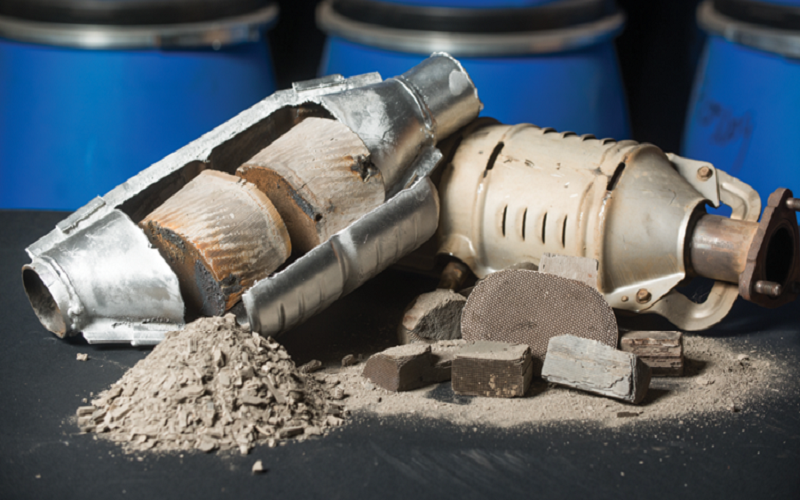By transforming dangerous gases into less harmful ones, catalytic converters are crucial parts of automobiles and are intended to minimise harmful emissions. Precious metals like rhodium, palladium, and platinum are included in these devices and serve as catalysts for the conversion process. Owing to their high value, catalytic converters are now a popular recycling target, providing companies with chances to make money while promoting environmental sustainability. This article will discuss how recycling catalytic converters may be a lucrative way to transform trash into money.
Strong Requirement for Precious Metals
The main factor making catalytic converters useful for recycling is the precious metals they contain. Rhodium, palladium, and platinum are highly sought after for a variety of industrial uses, especially in the electronics and automotive sectors. Because these metals are limited and in high demand, recycling catalytic converters offers a sustainable way to get these important resources that fulfil industry demands without requiring mining.
A Successful Business Plan
Because catalytic converters contain valuable precious metals, recycling them may be a worthwhile commercial endeavour. Catalytic converter recycling companies may make money by buying old converters, taking out the precious metals, and then selling them to manufacturers or refineries. Furthermore, a market for recycled goods is being created as customers become more prepared to pay for eco-friendly solutions as their knowledge of environmental concerns rises.
Technological Advancement
Technology has advanced to make recycling catalytic converters more economical and efficient. Technological advancements in catalyst recovery, such as hydrometallurgical and pyrometallurgical methods, enable reduced processing costs and increased metal extraction rates. Furthermore, the creation of automated methods for sorting and disassembling items has simplified the recycling procedure, lowering personnel expenses and raising output for recycling companies.
Accountability for the Environment
Recycling catalytic converters has advantages for the bottom line as well as environmental responsibility, which may improve a company’s reputation and brand image. Investors and customers are gravitating towards companies that support environmental stewardship and sustainable practices. Recycling businesses may stand out from the competition and draw in eco-aware clients by making contributions to resource conservation and minimising the negative environmental effects of mining operations.
Regulatory Support
Regulations are being put into place by governments all around the world to promote recycling and lower car emissions. Businesses are encouraged to take part in recycling activities by the criteria and recycling objectives set by several nations for the management of end-of-life vehicles. Furthermore, some governments provide tax breaks or other financial aid to businesses that recycle, which helps to further propel the recycling sector’s expansion.
Conclusion
The recycling of catalyst converters offers a plethora of commercial prospects, propelled by the elevated demand for valuable metals, innovations in technology, ecological consciousness, and legislative backing. Recycling-related businesses may save resources and cut pollution while also making sizable profits and improving environmental sustainability. Waste will continue to be turned into riches through catalytic converter recycling as the world moves towards a circular economy, which minimises waste and maximises resources.

